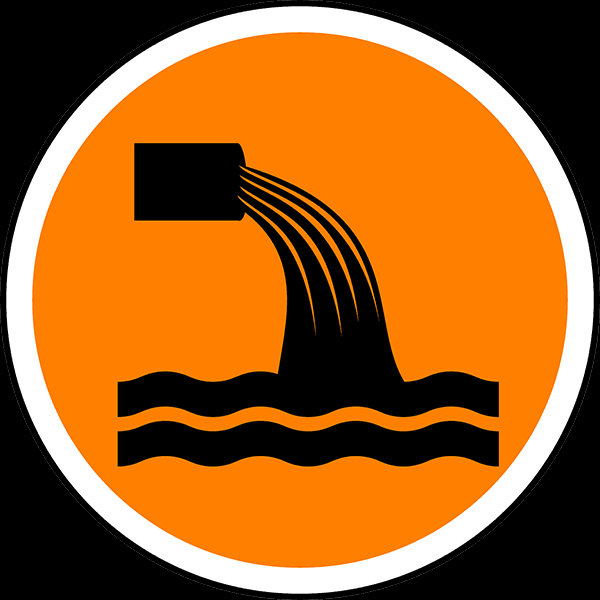Did you know that every day, humans produce an enormous amount of wastewater?
“Globally, about 359 billion cubic metres of wastewater is produced each year, equivalent to 144 million Olympic-sized swimming pools,” says Edward Jones , PhD researcher at Utrecht University and lead author of the study.
Worldwide, it is common practice to pump enormous volumes of wastewater into rivers, oceans and streams. This has extremely negative effects on the environment, fisheries, animals, and that’s not to mention it’s an aptly named ‘waste’ of water too. To put it simply, wastewater is any form of water that has been contaminated by a commercial or domestic process. This includes water that was used for sewerage and water that’s a by-product of large-scale industries such as mining and manufacturing.
Wastewater treatment is crucial for protecting our environment and ensuring that we make the most efficient use of our resources. In this blog post, we will discuss the effects of wastewater on the environment and why proper treatment is so crucial.
What is wastewater and what does the treatment of it entail?
Wastewater treatment is a process that converts wastewater from its unusable state into an effluent that can be either returned to the water cycle with minimal environmental issues or reused for another purpose. It’s a treatment that, given its importance, more and more governments are finally realizing that they need to take actionable steps to improve their wastewater treatment processes. Uruguay, which happens to be one of the most developed countries in South America, recently implemented modern water-treatment systems following a two-year construction project and a $21 million investment. The aim was to treat wastewater generated by civilians and minimise pollution. As a result, Uruguay’s water system no longer transmits disease and the nation has since stayed free from cholera epidemics.
Why is wastewater treatment so important?
Wastewater treatment is crucial in order to protect our environment and the health of both humans and animals. When wastewater is not treated properly, it can pollute our water sources, damage natural habitats, and cause serious illnesses.
Effectively, wastewater treatment plants do as described; they treat the water that goes down our drains before discharging it back into the environment. Regardless of the efforts that are being made to install these plants worldwide, more is required. Water is one of our most important resources and it’s being squandered. There are multiple ways to treat wastewater, and the better the process, the higher the percentage that can be reused before it gets dumped into the ocean.
The public has begun to stand up to oil companies about fracking and wastewater and the rules are slowly changing, especially in terms of transparency and its effects on the environment. It’s a good thing that the industry is under scrutiny as the more transparency that’s required by law, the better. We need to raise the levels of expectation for oil companies, mines, and other large-scale industries as they’ve been unregulated and sold to the highest bidder for too long.
The Future of Wastewater Treatment
It wouldn’t take much to make a huge change in this area, and it does need to happen, desperately. Great technological leaps are being made in the likes of Scandinavia in regards to recycling trash to create energy. In fact, Sweden actually ran out of its own waste and it now imports over 700,000 tonnes of waste from other countries. Less than 1% of their waste ends up at the dump and their wastewater is purified to the extent of being potable. This is an example of innovation in an environmental capacity and Sweden doesn’t have to be light years ahead of everyone else.
The re-use of treated wastewater has become a viable option to minimising water scarcity problems. The world has a growing and developing population and as things stand right now, we’re on a downward slope in terms of water conservation. Having said this, with some smart thinking, wastewater treatment and some generous open mindedness (something previously almost unheard of from corporations) we can turn this around and make much needed changes all around the globe.
At Carlow Concrete Tanks we are highly experienced in the treatment and maintenance of septic tanks and wastewater systems. For any queries or concerns related to your water system get in touch with us today or give us a call at +353 (0) 59 9159100 for your free quote.
Originally posted August 8th 2015


We consider wastewater treatment as a water use because it is so interconnected with the other uses of water. Much of the water used by homes, industries, and businesses must be treated before it is released back to the environment.
If the term “wastewater treatment” is confusing to you, you might think of it as “sewage treatment.” Nature has an amazing ability to cope with small amounts of water wastes and pollution, but it would be overwhelmed if we didn’t treat the billions of gallons of wastewater treatment service in pakistan and sewage produced every day before releasing it back to the environment. Treatment plants reduce pollutants in wastewater to a level nature can handle.
Wastewater also includes storm runoff. Although some people assume that the rain that runs down the street during a storm is fairly clean, it isn’t. Harmful substances that wash off roads, parking lots, and rooftops can harm our rivers and lakes.